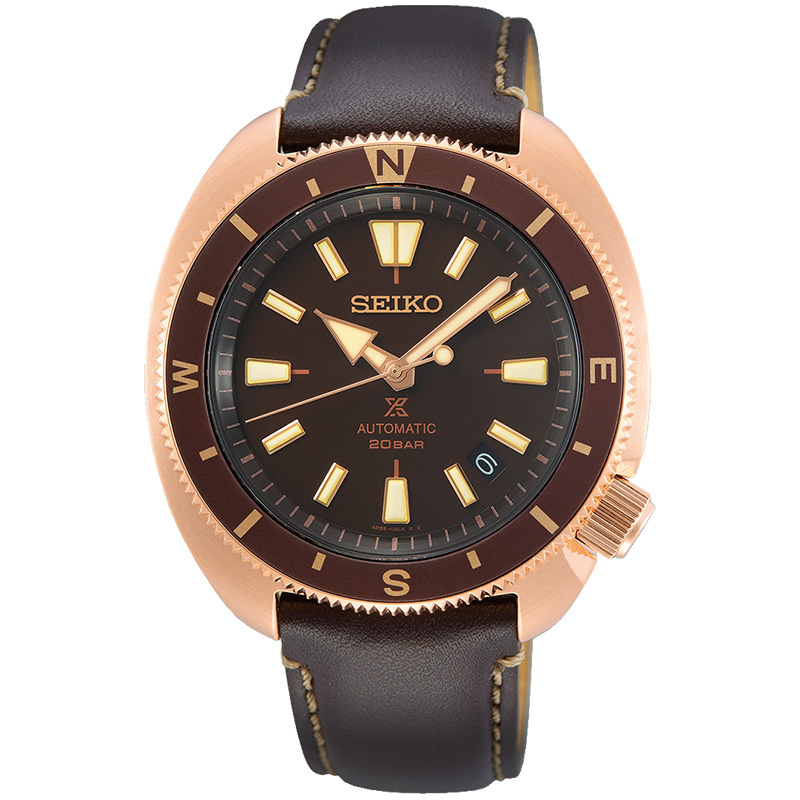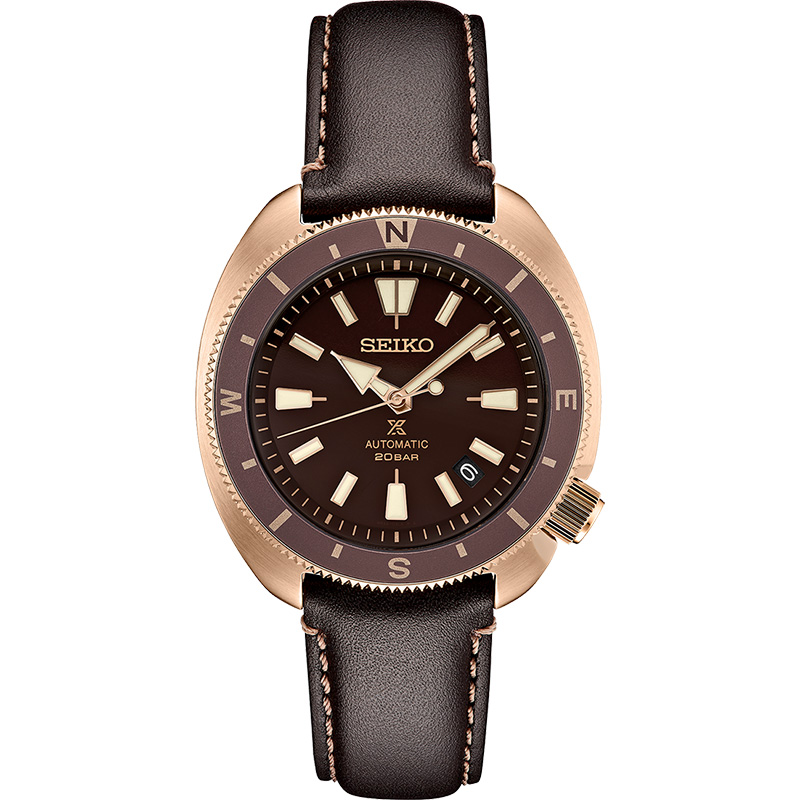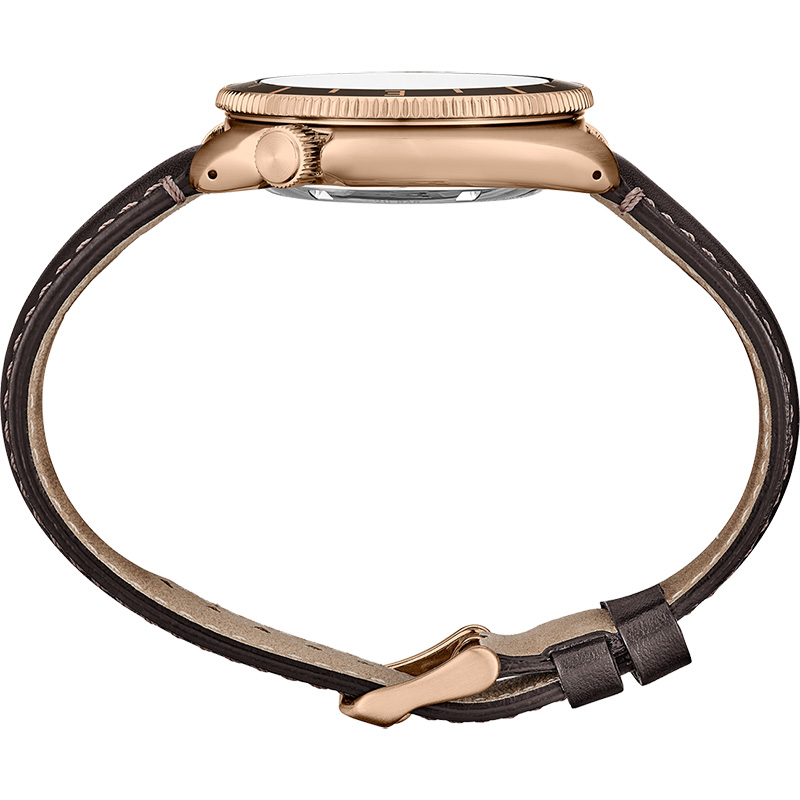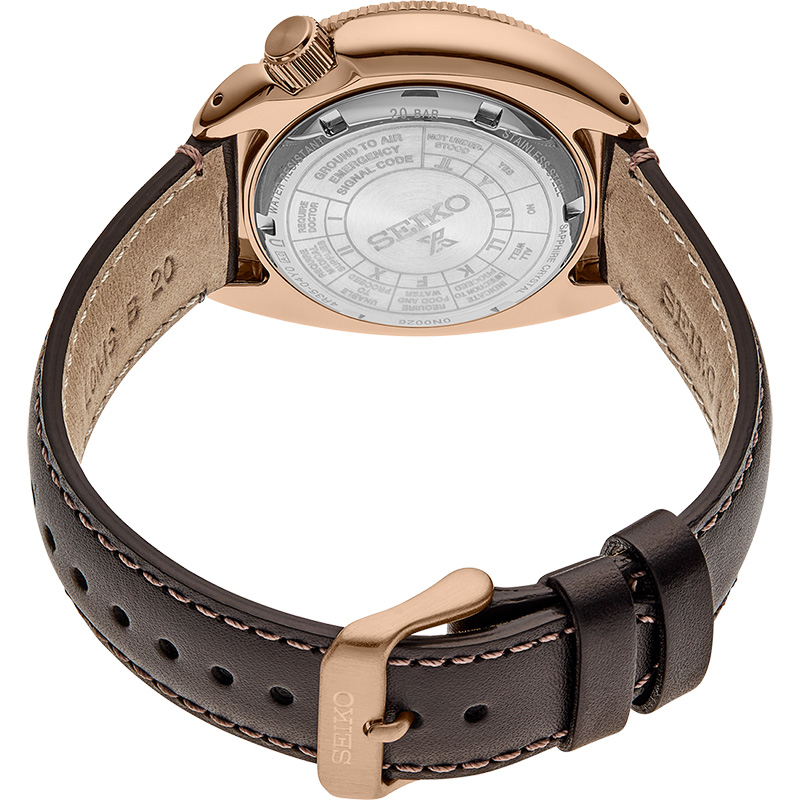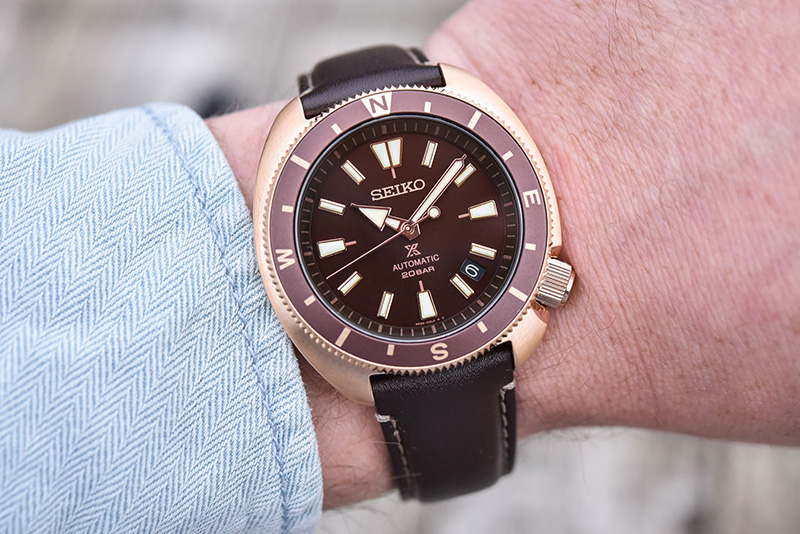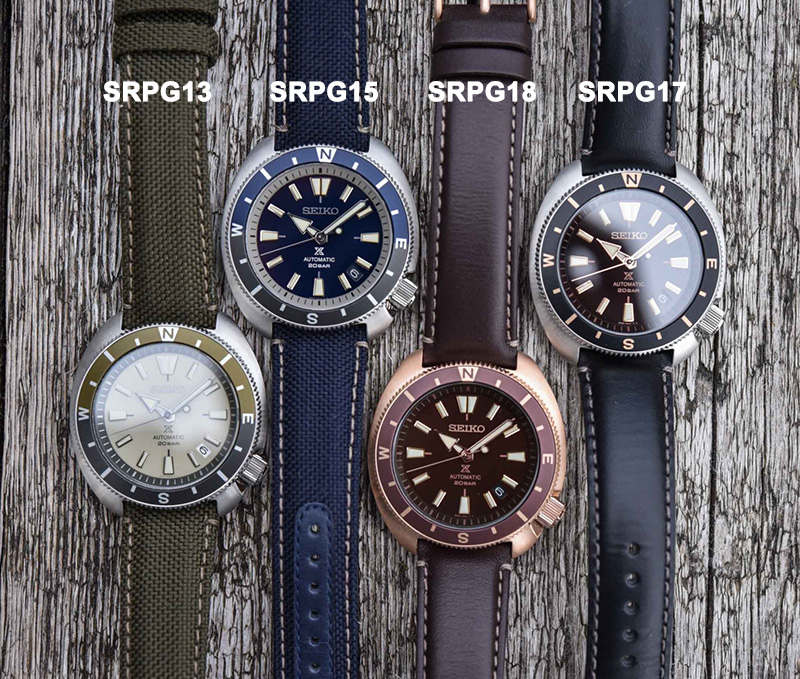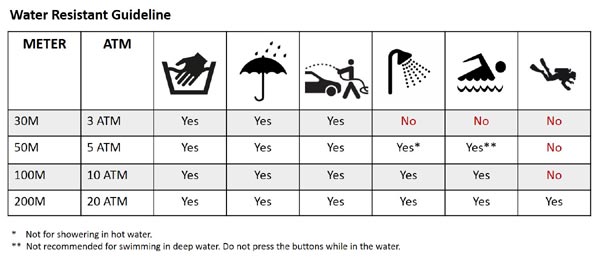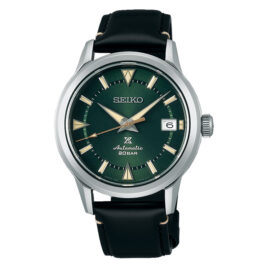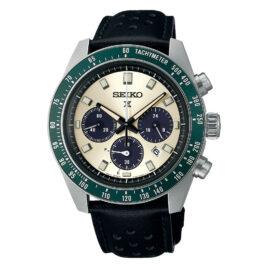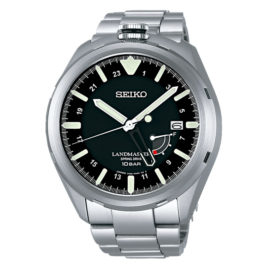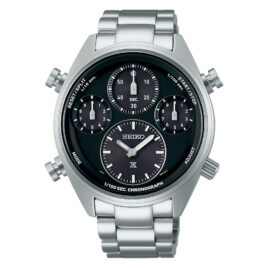Description
SEIKO Prospex SRPG18K1 Specifications :
| Feature |
| |||
|---|---|---|---|---|
| Driving system | Automatic with manual winding | |||
| Caliber Number | 4R35 | |||
| Case material | Stainless steel with rose gold PVD coating | |||
| Case back | Screw solid | |||
| Band type | Strap | |||
| Band material | Calfskin | |||
| Band color | Brown | |||
| Band width | 20 mm | |||
| Clasp | Steel pin buckle | |||
| Dial color | Brown | |||
| Glass material | Sapphire crystal | |||
| Hands | Luminous gold and rose gold tone (hour, minute, second) | |||
| Dial markers | Gold and rose gold tone batons with double trapezoid indexes at 12 o’clock position | |||
| Second markers | Minutes markers around the outer rim | |||
| Lumi Brite | Hands and indexes | |||
| Bezel | Two way rotating brown colored PVD stainless steel with aluminium insert and rose gold tone compass scale points | |||
| Crown | Rose gold tone screw down at 4 o’clock position | |||
| Calendar | Date display at between 4 and 5 o’clock position | |||
| Function | Date, hour, minute, second, stop second hand | |||
| Accuracy | -35 to +45 seconds per day | |||
| Magnetic resistance | 4,800 A/m | |||
| Vibration | 21,600 vibrations per hour | |||
| Drive duration | Power reserve approximately 41 hours | |||
| Water resistance | 20 bar water resistance (200 meters / 660 feet) | |||
| Size | Length : 45.2 mm x Diameter : 42.4 mm x Thickness : 11.7 mm | |||
| Weight | 85 g |
SEIKO Prospex SRPG18K1 Features :
- Date display
- 23 jewels
- Screw case back
- Screw-down crown
- Rotating bezel
- Stop second hand function
History of Seiko
The company was founded in 1881, when Kintarō Hattori opened a watch and jewerly shop called “K. Hattori” (服部時計店 Hattori Tokeiten) in the Ginza area of Tokyo, Japan. Eleven years later, in 1892, he began to produce clocks under the name Seikosha, meaning roughly “House of Exquisite Workmanship”.
The first watches produced under the Seiko brand appeared in 1924. In 1969, Seiko introduced the Astron, the world’s first production quartz watch, it cost the same as a medium-sized car. Seiko later went on to introduce the first quartz chronograph.

